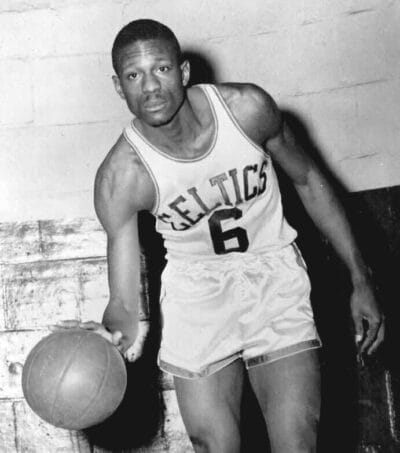When people think of basketball legends, Bill Russell is undoubtedly at the forefront of the conversation. His influence on the game of basketball has been paramount and enduring.
Russell was born on February 12, 1934 in West Monroe, Louisiana. As a 6’9” center he attended the University of San Francisco and was the first African American to get a college basketball scholarship west of the Mississippi River. In 1957, the Boston Celtics drafted him and the rest is history.

As a Celtic, Russell won eleven NBA championships and was an integral part of the Celtics’ long dynasty that dominated from 1957-1969. He was named MVP five times and is widely seen as one of the greatest defensive players in NBA history. He revolutionized the way defense was played by emphasizing teamwork and staying active on both ends of the court.
Along with his successes on the court, Russell was also a strong advocate for social justice. He was vocal about his opposition to racism during a time when few athletes were willing to speak out against civil injustices.
One of basketball’s most iconic players and true pioneers, Bill Russell.
Bill Russell Facts
- Bill Russell was a former American basketball player and coach who played center for the Boston Celtics of the National Basketball Association (NBA) from 1956 to 1969.
- An 11-time NBA All-Star and a five-time NBA Most Valuable Player, Russell was the centerpiece of the Celtics dynasty that won 11 NBA championships during his 13-year career, while making him the most successful team athlete in North American sports history.
- Russell led the University of San Francisco to two consecutive NCAA championships in 1955 and 1956, and he captained the gold-medal winning U.S. Olympic team in 1956.
- He also won an NBA championship as a head coach for the Celtics in 1968.
- In 2009, Barack Obama awarded him the Presidential Medal of Freedom for his achievements on and off the court.
- He is widely regarded as one of the greatest players in NBA history and was inducted into the Naismith Memorial Basketball Hall of Fame in 1975.









